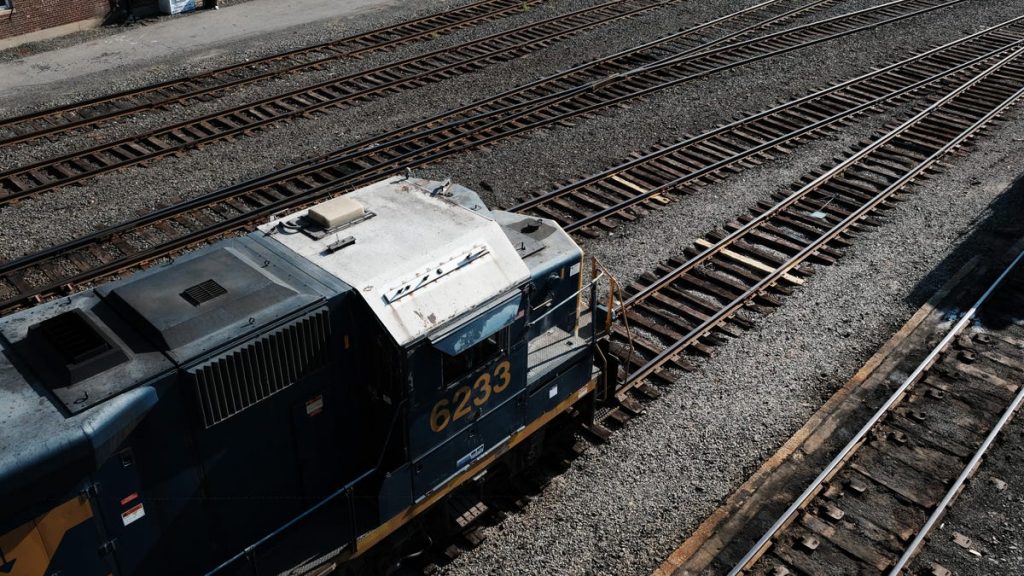Railroad Union Rejects Tentative Contract Agreement, Inching Closer to a Strike

Trains sit at the CSX Oak Point Yard, a freight railroad yard on October 11, 2022 in the Bronx borough of New York City. Photo: Spencer Platt (Getty Images)
The second of the two largest railroad unions still holding out on a new contract rejected Biden’s emergency board recommendations Wednesday. The tentative agreement orchestrated by a White House emergency council was a last-ditch attempt to prevent a railroad strike from disabling United State’s critical freight rail system.
The emergency tentative agreement came after three years of negotiations fell through. The White House barely avoided a strike back in September after 20 hours of marathon negotiations between railways, workers and the White House. Now that agreement has come to a vote and just over 60 percent of the 6,000-member Brotherhood of Railroad Signalmen voted it down, CNN reports. The Signalmen is the second of the two largest railroad worker unions to reject the proposal. The Brotherhood of Maintenance of Way Employees Division, which represents 23,000 workers, rejected the deal earlier this month with historic levels of member participation.
While other, smaller unions have agreed to the emergency recommendations, the two largest unions which actually run and repair the railways are holding outs over paid sick leave and days of doctor’s appointments. From CNN:
Rank and file members of the the signalmen union are mostly upset over the lack of paid sick days, said Baldwin.
“That’s the resounding message we heard everywhere,” he said. “Our guys worked through the pandemic. The employers made them quarantine at home and they didn’t get paid.”
In the past, the rail unions agreed to higher pay in return for no sick days except for prolonged medical absences. The tentative deals do not change those provisions.
Members of six of the smaller railroad unions have ratified their contracts despite the lack of sick days. But it appears it could be a sticking point in crafting a deal that the BMWED and signalmen membership will accept.
After BMWED rejected their tentative deal, union leadership proposed adding paid sick days during a bargaining session, only to have management reject the motion out of hand. Baldwin said he will make the same proposal at the negotiating table.
“I anticipate they’re going to tell me no as well,” he said. “They’ve denied us ability to bargain in good faith for three years. That’s not going to change now.”
The unions have a cooling-off period after voting down a contract, which puts the earliest date for a strike at November 19 or early December—just in time for the holidays. But it won’t just be holiday gifts that might be affected; over 40 percent of long-haul freight in the U.S. is moved by rail lines maintained and operated by members of these two largest unions. That includes items like gas, drinking water, and animal feed for factory farms. Amtrak also runs its lines west of Chicago on freight rail lines and will likely need to cancel its sight-seeing routes.
Congress could move to force an agreement between management and unions thanks to a 1992 amendment to the Railway Labor Act which allows Congress to end a strike or lockdown if it hurts the U.S. economy. Congress will likely act quickly to protect the U.S. economy from further potentially disastrous supply chain woes which might contradict President Biden’s pro-labor demeanor.
G/O Media may get a commission
20% off
Ettitude – 20% Off
20% off bundled bamboo bedding
The brand’s proprietary CleanBamboo is a soft, breathable fabric; their signature sateen is cool to the touch.
Still, there remains a great deal of anger in the union’s rank-and-file against management, which they say have cut corners and put lives at risk in the name of record profits.



